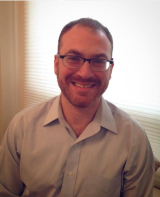








DEPARTMENT OF JEWISH STUDIES
LEVITES ANNUAL LECTURE, 2016
Writing Jewish History in the Jewish State:
Revisiting Israeli Historiography
Professor Israel Bartal
Avraham Harman Chair in Modern Jewish History
Hebrew University of Jerusalem (Emeritus)
Time: Thursday, March 17, 2016 at 4:00 p.m.
Location: Leacock 738
ALL WELCOME

Hebraism and the Harlem Renaissance: Black-Jewish Relations and Cultural Pluralism
 Date & Time: November 10, 2015 at 4:00pm
Date & Time: November 10, 2015 at 4:00pm
Location: McGill University, 845 Rue Sherbrooke West, Arts Building 150
Lecturer: David Weinfeld (University of Toronto), a Montreal native, teaches American Studies at the University of Toronto. He received his PhD in History and Hebrew and Judaic Studies at New York University in 2014. He has also taught at Queens College, Temple University, and NYU. He is working on his first book, to be titled, "What Difference Does the Difference Make? Horace Kallen, Alain Locke, and the Development of Cultural Pluralism in America."

Sibling Rivalries, Scriptural Communities: Judaism, Christianity, and Islam
(Sponsored by the Department of Jewish Studies and the Solomon and Dorothy Levites Series of Symposia and Seminars in Jewish Studies)

Date and Time: March 23, 2015 at 5:00 pm
Location: McGill University, Leacock Building, Room 219
Lecturer: David Nirenberg, author of Anti-Judaism: The Western Tradition (2013) and Neighboring Faiths: Christianity, Islam, and Judaism in the Middle Ages and Today (2014). Deborah R. and Edgar D. Jannotta Professor of Social Thought, Medieval History, Middle East Studies, and the College and Dean of the Social Sciences Division at the University of Chicago.
Inter-religious conflict—and, with it, many questions about the role of scripture in that conflict—is once again at center stage in our geopolitical consciousness. Do the claims of the Jewish, Christian, and Islamic holy texts contribute to the violence between the various communities that read them? Or do they provide a basis for solidarity between these three religions? This talk will examine how the Qur’an, Torah, and New Testament have been read at different moments in history to consider the politics of conflict and community among the “peoples of the Book.”
Free Admission. All Welcome.